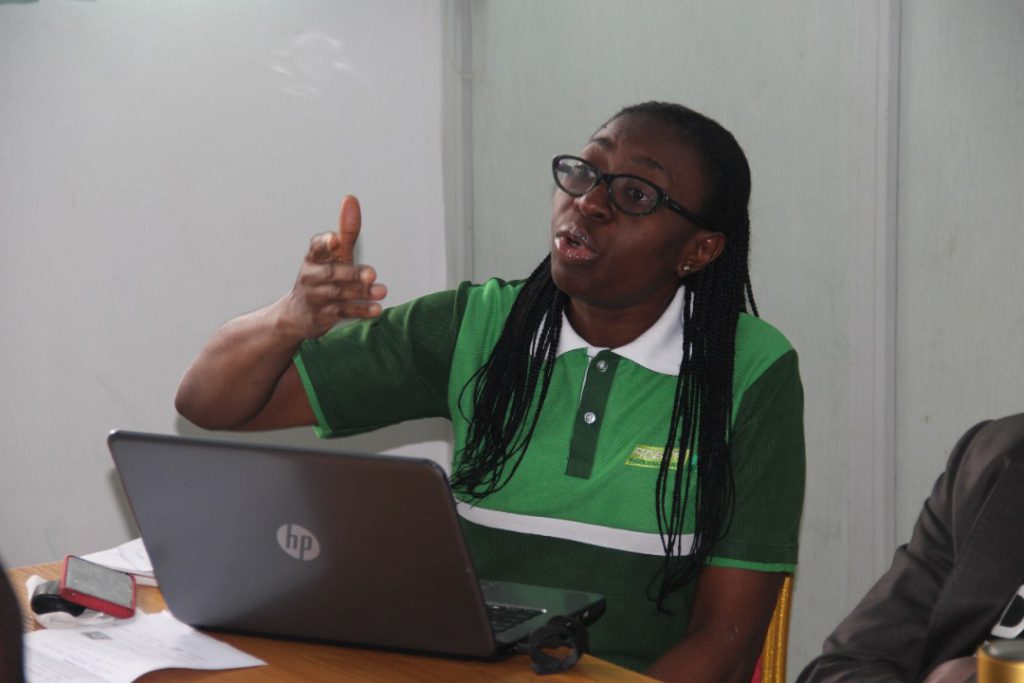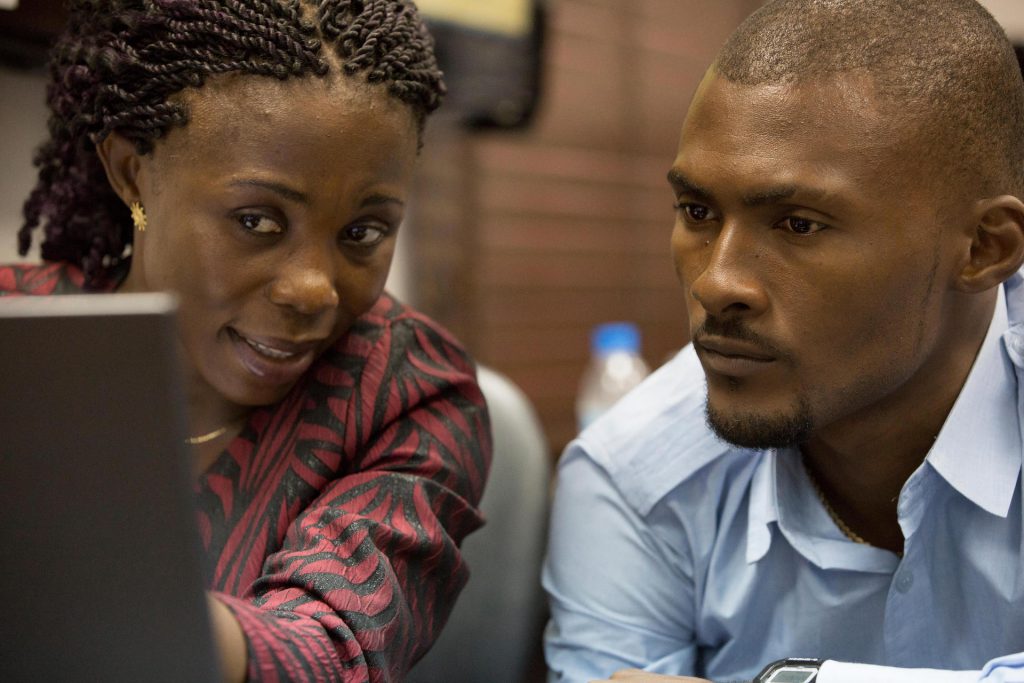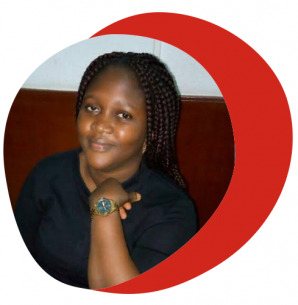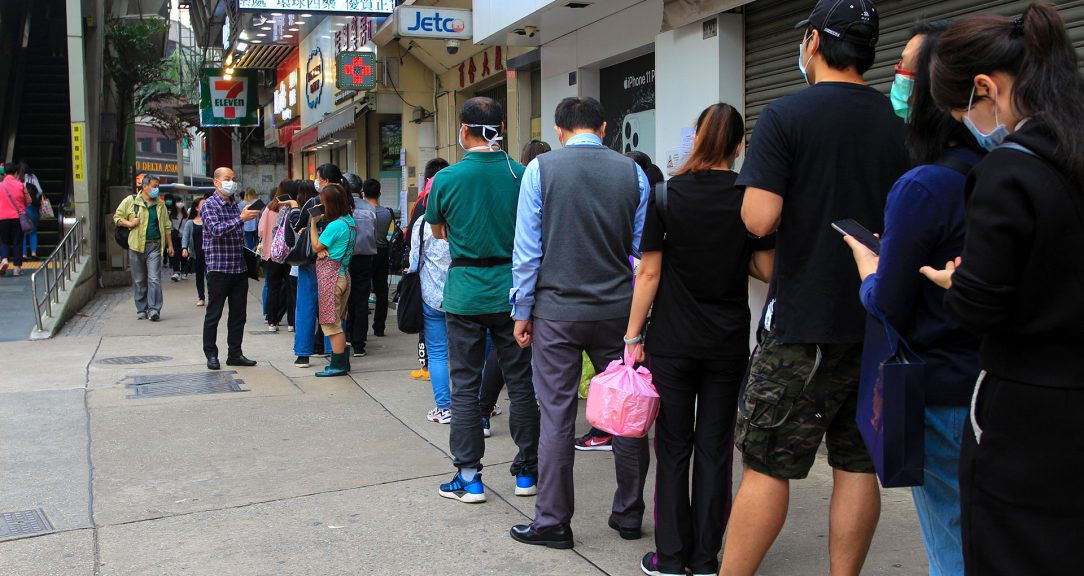Taofeek Adeyemi had been working at a microfinance bank in Lagos for just three months when the pandemic struck.
All nonessential businesses in Nigeria had to close for a month in the initial lockdown. When restrictions were partially lifted in April 2020, he went back to work from 9 a.m. until 3 p.m. But reduced hours meant his salary was also reduced by 40%.
“Even before salaries were slashed, I wasn’t earning enough,” Adeyemi says. “With my pay reduced, I found it hard to cope with all my expenses. To make things worse, everything has become more expensive and commodities have gone up since the pandemic began. I have rent to pay, and now I pay almost double for transportation to work.”
Having worked in the financial sector for six years, Adeyemi earns 97,000 naira monthly, about $240. The minimum monthly wage is NGN 30,000, so comparatively, he’s not doing so bad. But he still finds it difficult to support himself, his wife, two children and an aged mother in Lagos. Like many people in the megacity, he lives in a suburb where rent is lower and spends hours commuting to work.
“I want to have my own house, but building a house is expensive and managing all my expenses with my salary is almost impossible,” he says. “I always run out of money before the next payday, and I have to borrow from friends and family.”
Adeyemi’s case is not uncommon; in fact, since the pandemic began, employees around the world have been impacted by job losses, furloughs, and pay and benefit cuts as businesses struggled to survive. ADP’s People at Work 2021: A Global Workforce View Report 2021 found that about 76% of workers worldwide are concerned about their job security. ADP found that 23% of workers globally experienced pay cuts during the pandemic; in Nigeria, it was 56%.
Workers on the lower end of the pay scale were especially at risk, according to ADP research on financial wellness. This group is likely to struggle with basic financial planning needs such as getting out of debt, meeting monthly expenses and building emergency savings. The amount of effort they expend just to stay afloat makes it difficult to set long-term financial goals and can distract them from their work.
In Nigeria, the challenges of financial wellness for employees became more pronounced during the pandemic. Nigeria is experiencing its worst recession since the 1980s, greatly affected by the price drop in crude oil, a major export. Unemployment rose from 23.1% in 2018 to 27.1% at the end of 2020.
As the world emerges from the pandemic, businesses are creating or bolstering financial wellness initiatives to help employees become better prepared should the unexpected happen again. In Nigeria, banks and nongovernmental organizations offer targeted financial education initiatives for women, small business owners and young people. But companies are finding that the workplace is one of the most effective environments to cultivate financial wellness.

Education as a solution
The first step to financial wellness is financial inclusion. The Central Bank of Nigeria set a goal in 2012 to boost financial inclusion to 70% by 2020. More specifically, it aimed to increase the number of adult Nigerians with access to savings from 24% in 2010 to 60% in 2020, access to credit from 2% to 40%, access to insurance from 1% to 40%, and access to pensions from 5% to 40%. By the end of 2020, financial inclusion had increased to 60% — short of the goal, but still a great leap from 36.3% in 2010.
Ngozi Bukola-Ajetunmobi is the head of human resources for a pension fund administrator in Lagos. She previously worked for 10 years in HR for one of Nigeria’s major banks, and she believes more employers should promote financial wellness with targeted education. In Nigeria, banks are especially likely to focus on financial education.
“It’s a priority for banks to provide financial education,” Bukola-Ajetunmobi says. “Employees are exposed to financial education at different points; it forms part of the training received during onboarding and there are occasional trainings during the year that consists of financial education.”
Programs for well-paid employees of financial institutions address long-term planning and investment options, and help prevent them from becoming victims of fraud or Ponzi schemes.
Saving is a big focus. “When employees are used to regular income, they may not necessarily think about an event where such regular income stops,” Bukola-Ajetunmobi says. “We’ve had cases of people who were laid off and became nearly destitute within a short period of time and were begging for money from former colleagues who were still employed. Financial training encourages them to save and invest, in case of unforeseen circumstances like job loss.”
The holistic program includes real-life scenarios with case studies to teach the personal financial planning principles, Bukola-Ajetunmobi says, and they also encourage accountability during team meetings.
But ADP financial wellness research has found that only 31% of those earning less than $25,000 per year are able to save; they are more likely to describe themselves as spenders. Taofeek Adeyemi, for example, dreams of owning his own house, but saving on his salary is difficult. His expenses have outgrown his income, a problem faced by many employees in the lower income brackets. In Nigeria, most people consume more than they save or invest, and low-income earners in the country cannot easily access loans for building or buying a home.
An initiative aimed to help employees save are savings associations, which are a type of cooperative. These groups are established by employees and managed with some help from the employer, who authorizes deductions from salaries with the cooperative as the beneficiary. At Bukola-Ajetunmobi’s bank, this has been instrumental in helping employees reach their financial goals.
“Employees jointly agree among themselves on the cooperative model to run within the year,” she says. Contributions may be targeted at personal projects such as physical assets like land or a house, or investments such as mutual funds, shares or bonds, or toward starting new businesses.
After the pandemic
The World Bank expects Nigeria’s GDP per capita in 2023 to be similar to that of 2010 in the baseline scenario, meaning that the pandemic has essentially erased 13 years of wage growth. So experts expect more employers to be paying attention to their employees’ financial wellness in coming years.
Adepeju Adegoke, a management consultant in Lagos, believes many employers will pay more attention to safeguarding against unforeseen circumstances. She recommends employers provide training on financial management strategies, retirement preparation and investment options.
“Organizations that prioritize preparing for unanticipated situations will be keen to provide financial education to their employees,” Adegoke says. “Even when they don’t view it as a direct obligation, it could be beneficial from the social capital perspective.”
When employees are practicing holistic financial management strategies, they are better prepared to cope with a sudden loss of income, and “the organization itself also benefits,” Adegoke says. “This is because in the worst-case scenario, where employees have to be laid off, they have requisite financial skills and savings that could sustain them until they are hired elsewhere.”
Large corporations and financial institutions might already have such programs in place, but there is still room for growth among the 17.4 million small and medium-sized enterprises (SMEs) in Nigeria. Companies with fewer than 200 employees contribute nearly half of the country’s GDP and provide more than 80% of the country’s jobs.
Adegoke believes proper financial education will help employees thrive in a post-pandemic world and withstand future disruptions. It’s advice she takes to heart.
“As a consultant and a business owner, I have learned to apply financial education to my personal life and business, since I don’t always have inflows from clients,” she says. “So I plan ahead for emergencies and projects, and this keeps me calm when inflows are slow.”
Read more
Sign up to keep up to date with ReThink Q.







